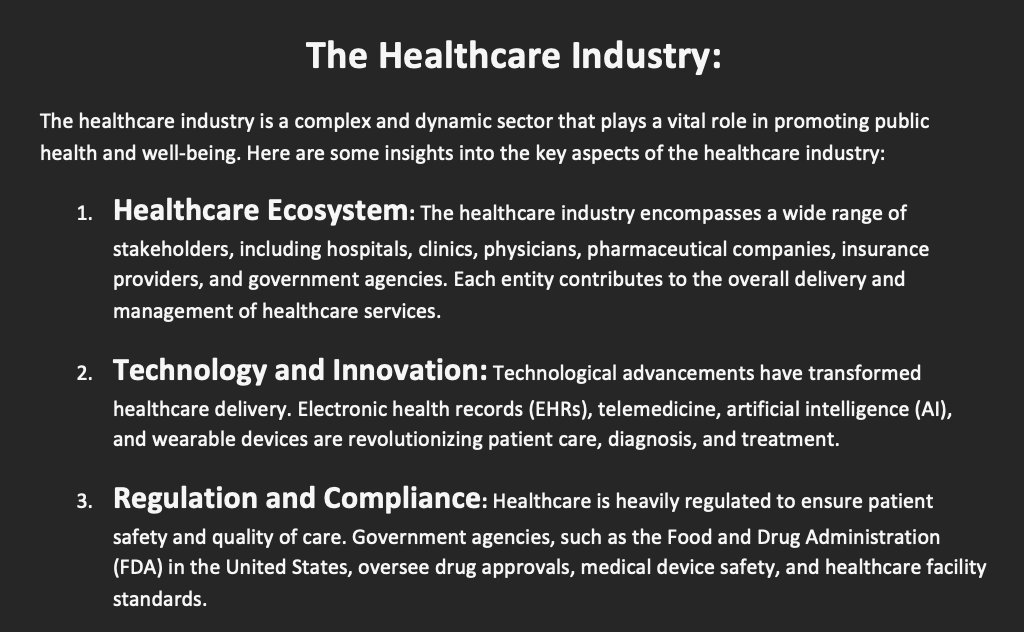The Healthcare Industry
Summary:
The healthcare industry is a multifaceted sector crucial for public health and well-being. It involves diverse stakeholders such as hospitals, clinics, physicians, pharmaceutical companies, insurance providers, and government agencies, all contributing to healthcare delivery and management. Technological innovations like Electronic Health Records (EHRs), telemedicine, AI, and wearables are revolutionizing patient care and treatment. The industry is subject to stringent regulations from bodies like the FDA to ensure patient safety and quality of care. It also faces global challenges like infectious diseases, antimicrobial resistance, and healthcare accessibility, requiring international cooperation. Health insurance is pivotal in making healthcare affordable, while healthcare economics focuses on the efficient allocation of resources, cost-effectiveness, and value-based care. The aging population is increasing the demand for healthcare services, particularly in chronic disease management and long-term care. Mental health awareness has gained prominence, with efforts to reduce stigma and improve access to mental health services. Ethical considerations like patient autonomy, end-of-life decisions, and equitable access are guided by bioethics. Medical research, including clinical trials and scientific studies, is essential for developing new treatments and improving patient outcomes. The industry’s evolution is influenced by scientific advancements, policy changes, and societal needs, with professionals working collaboratively to enhance global health.
Excerpt:
The Healthcare Industry
The Healthcare Industry:
The healthcare industry is a complex and dynamic sector that promotes public health and well-being. Here are some insights into the key aspects of the healthcare industry:
- Healthcare Ecosystem: The healthcare industry encompasses many stakeholders, including hospitals, clinics, physicians, pharmaceutical companies, insurance providers, and government agencies. Each entity contributes to the overall delivery and management of healthcare services.
- Technology and Innovation: Technological advancements have transformed healthcare delivery. Electronic health records (EHRs), telemedicine, artificial intelligence (AI), and wearable devices revolutionise patient care, diagnosis, and treatment.
- Regulation and Compliance: Healthcare is heavily regulated to ensure patient safety and quality of care. Government agencies, such as the Food and Drug Administration (FDA) in the United States, oversee drug approvals, medical device safety, and healthcare facility standards.


Reviews